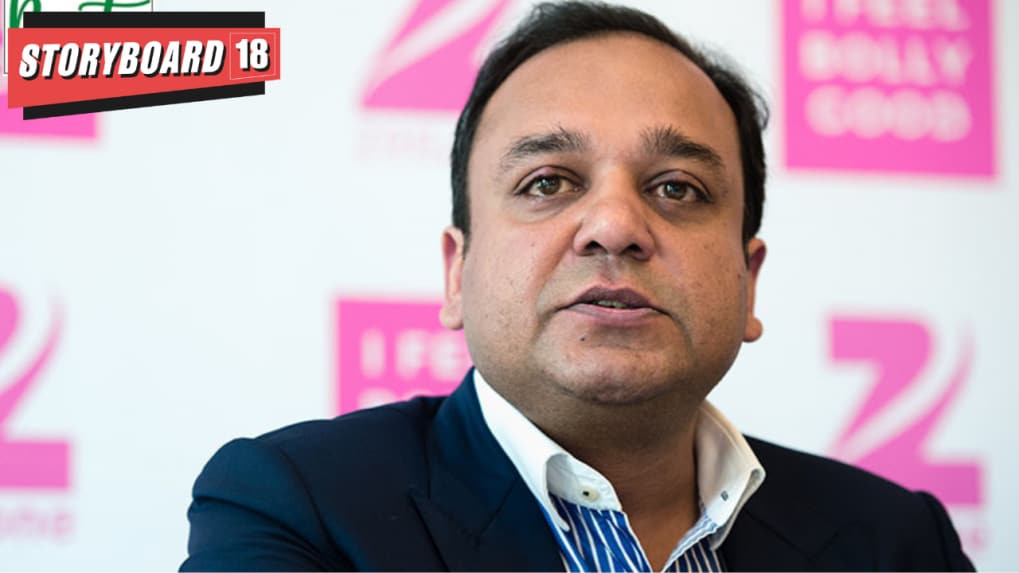How it Works
WPP, Havas, Omnicom: Are advertising’s biggest holdcos recasting agencies as AI Operating Systems?

Zee Entertainment Enterprises Ltd (ZEEL) is positioning itself for future growth with a combination of strategic investments, content expansion, and digital innovation, according to CEO Punit Goenka. The company’s latest performance reflects both deliberate business recalibrations and efforts to strengthen its fundamentals, even if short-term profitability is impacted.
Speaking during the company’s quarterly investor call, Goenka emphasized the role of the media and entertainment industry as a “cultural soft power” for India. “Investing for the future often requires consistent action and making some tough choices,” he said. “Our performance during the second quarter reflects deliberate investments and strategic recalibrations aimed at strengthening business fundamentals and driving sustainable value creation for all our stakeholders.”
A key highlight of ZEEL’s strategy has been the growth of its digital platform, ZEE5. The company’s approach focused on performance and profitability has started yielding results, with the introduction of tailored subscription plans in seven languages. According to Goenka, “This has resulted in an uptick in subscription revenue sequentially. We remain committed to achieving profitability in this segment in the quarters to come on the back of these concerted steps.”
On the linear broadcasting front, investments in content are paying off. ZEEL achieved an 18.2% market share in July, and seven of its channels secured leadership positions in their respective markets. “Our newly launched shows across languages have emerged as slot leaders, and our iconic properties continue to drive strong viewership gains,” Goenka added.
However, these growth-oriented investments have had a direct impact on profitability during the quarter. Content costs have increased, alongside a marginal rise in advertising and promotional expenditure. Goenka urged stakeholders to view these expenses in the context of longer-term growth, stating, “The judicious investment in content is a conscious choice taken by the company to invest for the future after careful evaluation of the balance sheet.”
Looking ahead, ZEEL expects costs to stabilize in the second half of the fiscal year. “As we progress, these costs are expected to stabilize and accrue higher gains in advertising and subscription across segments,” Goenka said. He highlighted the early onset of the festive season and GST reforms as positive catalysts for advertising revenue. “We witnessed a marginal uptick in advertisement revenue sequentially due to higher spend by FMCG companies,” he noted.
The company is also exploring new segments like short-form content. ZEEL recently partnered with Ideabaaz Tech Private Limited to launch Ideabaaz, aimed at promoting India’s start-up ecosystem. Goenka said, “We are leveraging the strength and reach of our linear and digital platforms with this format, and we will continue to strengthen our offerings to reflect India’s culture and ambitions.”
During the investor call, executives addressed key questions on advertising revenue. Goenka maintained a cautiously optimistic outlook, stating, “We have already seen some uptick coming from the FMCG sector. It is still early days, and the impact of GST pullback will be visible over the next couple of months.” Vikas Somani, CFO, added that while the company avoids providing precise margin guidance, “The bump-up in cost was more towards investment and growth-oriented initiatives. This is reflected in the ratings of the content. Given that, we are sitting on a good operating leverage at this point of time.”
The discussion also touched on the evolving nature of advertising revenue, with more spend shifting toward digital platforms. Goenka clarified, “We are now operating in both businesses. We have to consider our performance on a consolidated basis. If the combination is working positively for the organization, it is a positive impact — not just for advertising but for subscriptions as well.”
Regarding subscription revenue, the company saw approximately 5–6% growth in the quarter, primarily driven by ZEE5’s digital offerings. Goenka stated, “We are largely stagnant on the linear business side. For us, the business strategy is now a combined monetization approach from both angles — digital and broadcast.”
Promoter shareholding was also addressed during the call. Responding to questions on increasing promoter stakes, Goenka said, “We are very keen to increase our stake in the organization in whichever structured manner we can find best. Open market transactions have not been considered yet, but as a family and as promoters, we are debating this on a daily basis to figure out the best way forward.”
With strategic investments in content, growth in digital subscriptions, and careful monitoring of advertising trends, ZEEL aims to consolidate its leadership position across language markets while positioning itself for sustainable growth.
Zee Entertainment Enterprises Limited (ZEEL) announced its financial results for the second quarter of fiscal year 2026, reporting a sharp decline in profitability amid higher advertising and promotional spending.
The company’s consolidated net profit dropped to Rs 76.5 crore in Q2 FY26, compared to Rs 209 crore in the corresponding quarter last year — a decline of 63% year-on-year. On a quarter-on-quarter (QoQ) basis, profit fell 45.5% from Rs 143 crore in the previous quarter.
From purpose-driven work and narrative-rich brand films to AI-enabled ideas and creator-led collaborations, the awards reflect the full spectrum of modern creativity.
Read MoreThe Storyboard18 Awards for Creativity have unveiled a Grand Jury comprising some of India’s most influential leaders across advertising, business, policy and culture, positioning it among the country’s most prestigious creative award platforms.